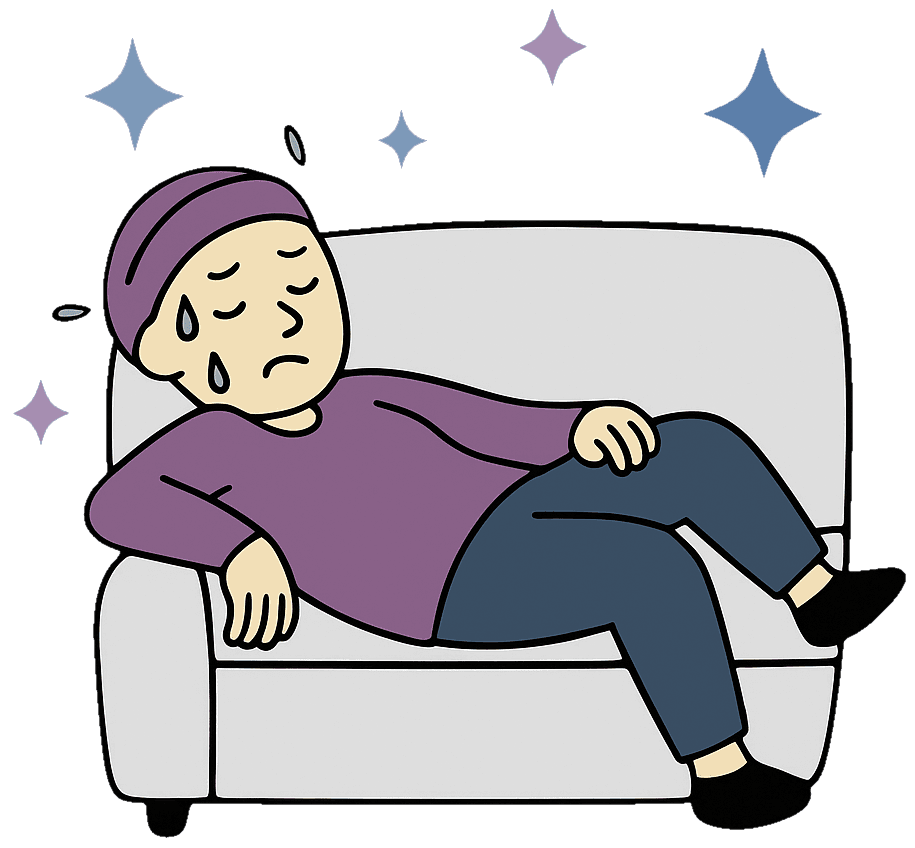How to Find Cancer Grants You’re Eligible For
If you’re facing cancer, you know the financial strain is real. The costs of medical bills, travel, and prescriptions add up fast, creating a heavy burden often called financial toxicity.
The good news: hundreds of cancer grants, co-pay assistance programs, and nonprofit financial-aid options are designed to help. But finding them can feel like searching for a needle in a haystack.
As a survivor who navigated this maze myself, I created this guide to be the map you need. This step-by-step plan shows you exactly how to find financial assistance for cancer patients, verify you're eligible, and organize your search—without getting overwhelmed.
Step 1: Map Your Universe with National Cancer Resource Directories
Your first move is to get a big-picture view of what's available. National resource directories are powerful databases that act as "search engines" for patient aid. They list financial help for cancer patients, co-pay assistance, travel grants, and housing support all in one place.
CancerCare Financial Assistance Directory A great starting point. Search by ZIP code or diagnosis to find grants for treatment costs, medication, and daily living expenses.
American Cancer Society Resource Finder Find national and local support, including their Road To Recovery program for transportation and Hope Lodge for free lodging near cancer centers.
NeedyMeds Patient Assistance Database An excellent tool for locating free or discounted prescription programs, charity funds, and financial aid for chemotherapy—especially if you are uninsured or under-insured.
Survivor Tip: Search each database with different keywords. Try "breast cancer travel assistance," "co-pay support for [drug name]," or "help with cancer medication costs." Each platform’s search function is different, and you'll uncover more options by varying your terms.
Step 2: Track Open & Closed Cancer Funds with Real-Time Alerts
Grant and co-pay help programs often have limited funding that opens and closes throughout the year. The key is to get notified the moment a fund opens.
The PAN Foundation's FundFinder is an essential tool. It's a free app that monitors more than 200 patient-assistance funds and sends you an email or text alert when new funding becomes available for your specific diagnosis.
Also, be sure to check the websites of these other trusted national organizations that provide financial assistance for cancer treatment:
HealthWell Foundation: Offers numerous funds for cancer medications and treatment costs.
The Assistance Fund (TAF): Provides disease-specific programs, including many for oncology.
Good Days Foundation: Helps with travel, diagnostic testing, and medication support.
Leukemia & Lymphoma Society (LLS): A key resource for financial aid and travel assistance for blood-cancer patients.
Step 3: Uncover Hidden Gems with Smart Searches (Google & AI)
Beyond the big databases, you can uncover local and niche support programs through targeted searches.
Use Specific Google Searches
Try phrases that are specific to your need and location:
"financial assistance for cancer patients near me"
"nonprofits that help pay for chemotherapy in [Your City]"
"travel grants for cancer treatment [Your State]"
"copay assistance programs 2025"
Focus on results from .org (nonprofits) and .gov (government) sites, as these are typically the most reliable sources.
Leverage AI Tools to Research Faster
Modern AI research tools like ChatGPT or Google Gemini can act as your personal research assistant. Use a detailed prompt to get a personalized list of cancer support programs.
Pro Tip: Give the AI a clear, specific prompt like this:
"Act as a cancer resource navigator. List 10 open financial-assistance programs in [Your State] for a patient with [Your Diagnosis]. Include programs for co-pay, travel, and lodging aid. Provide eligibility criteria and direct application links."
Even with AI, always double-check eligibility, deadlines, and required documents on the official program websites.
Step 4: Activate Your Support Team of Navigators and Social Workers
You don't have to do this research alone. Your greatest allies are the professionals at your treatment center.
Oncology Social Workers and Financial Navigators are experts at this. They know which local and national programs best fit your income and insurance. They can help you complete applications, gather documents, and find cancer caregiver resources.
They can also guide you through your hospital's own charity-care programs or sliding-scale payment assistance, which can significantly reduce outstanding medical bills.
Step 5: Prepare Your Application "Go-Kit"
Most cancer financial aid programs require similar documentation. Gather these documents into a single folder now to avoid delays later. This "Go-Kit" helps you apply for multiple grants efficiently.
Proof of diagnosis (a letter from your oncologist)
Photo ID and proof of residency (like a utility bill)
Income verification (your most recent tax return or pay stubs)
Insurance documentation and recent Explanation of Benefits (EOBs)
Your treatment plan or a list of your prescriptions
Having this packet ready means you can act fast the moment a fund opens. For a complete checklist, see our guide on How to Apply for Cancer Grants and Maximize Your Success.
Your One-Hour Grant Application Game Plan
Feeling overwhelmed? Break it down with this simple, one-hour plan to get started today.
(20 mins): Search the top three directories: CancerCare, American Cancer Society, and NeedyMeds. Make a list of 5 promising programs.
(10 mins): Sign up for alerts on PAN FundFinder for your specific diagnosis.
(15 mins): Email your hospital social worker or financial navigator. Ask for a meeting to discuss financial aid options.
(15 mins): Search Findhelp.org using your ZIP code to find local help with rent, utilities, food, and transportation.
Ready to Activate Your Financial Support Plan?
At Evolvve Health, we specialize in turning this overwhelming process into a clear, actionable plan. As a survivor-led coaching practice, we provide the steady support you need to get results.
Talk: Book a free, no-obligation intro call to discuss your financial concerns.
Map: We'll create a personalized map of the grants and aid programs you're most likely to qualify for.
Activate: We'll guide you step-by-step as you submit applications and secure the financial relief you deserve.






